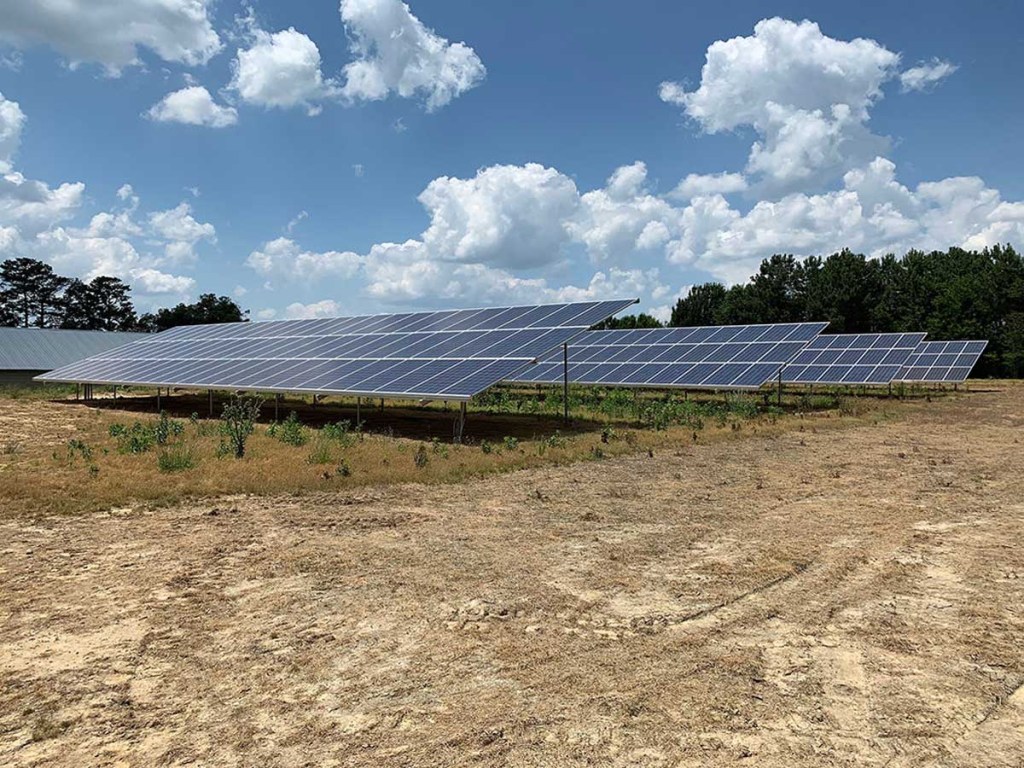Solar solution: Local farm debuts renewable energy project
Published 11:50 am Thursday, June 20, 2019

- Solar cells provide power for an off-the-grid poultry house in Cullman County, Alabama. Auburn University and Tyson Foods are partnering on a research project studying solar energy usage versus standard electricity usage by a normal poultry house.
Cullman County is now home to a first-of-its-kind experiment in bringing green energy to the world of raising poultry.
Thanks to a collaboration between Auburn University’s National Poultry Technology Center, Tyson Foods, and local farming family Tim and Selena Butts, the first batch of broilers is now two weeks into its new life inside a conventional chicken house that comes with one big new twist: a retrofitted electrical system that supplies all the birds’ needs via on-site solar power.
Located near Simcoe, the solar-powered house sits near a twin version that still relies on conventional electricity. The goal, at least during the first year of the experiment, is to compare costs and look for data that could yield other, perhaps still-unknown, benefits to making the switch, according to local cooperative extension agent Tony Glover.
“The idea is to compare the solar house with the one that’s connected to the conventional grid connected over the next 12 months,” Glover explained Wednesday.
“At Auburn’s level, there’s a strong research interest in the type of things that could come out of this besides just learning about the power source. There may be a lot of data we can learn about management that Auburn’s keenly interested in, if it turns out that solar helps produce a healthier bird, that of course would be of interest to Tyson Foods as well.”
At 54 feet wide and 500 feet long, the two houses look much like other poultry facilities that pepper rural Cullman County, among the nation’s most-productive broiler-growing regions. But if the switch to solar demonstrates the kind of benefits that can scale to other farms, they could help incubate a series of changes that could revolutionize some of the operational practices that growers long have taken for granted as just part and parcel of the poultry business.
“It’s primarily a feasibility study, as well as a longer-term profitability one, to assess the ability to harness a renewable resource on a long-term basis,” explained Dennis Brothers, the Blount County cooperative extension liaison for the project. “It’s the very first project like this, the way it’s been put together.
“The initial data-collecting phase is designed to last for a year, but it won’t necessarily end there. There’s a lot that can be learned with something as new as this.”
Benjamin Bullard can be reached by phone at 256-734-2131 ext. 145.


